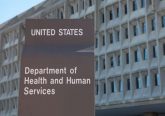Indiana ‘hopeful’ Supreme Court will hear case on defunding abortion clinics
by Christine Rousselle
Washington, D.C. Newsroom, May 4, 2020 / 11:00 am MT (CNA).- The state of Indiana is hopeful the Supreme Court will hear their case on whether the state can block Planned Parenthood and other abortion providers from receiving Medicaid funding.
State Solicitor General Tom Fisher told CNA that Indiana is once again petitioning the Supreme Court to grant certioari in a case to determine if it is lawful to exclude abortion providers from receiving Medicaid funds after state Attorney General Curtis Hill filed an amicus brief with the Supreme Court on April 30.
“States have authority to determine who is a qualified Medicaid provider,” Fisher told CNA in an interview on Friday, May 1. Fisher said that Indiana had decided to exclude abortion providers from the list of qualified Medicaid providers as they did not wish to subsidize abortions, “even indirectly,” with state money.
“Every dollar that goes to a clinic is going to support whatever they do, even if they can’t charge separately for abortion,” he said. Under the Indiana law, organizations like Planned Parenthood, which is a single legal entity, cannot receive government funding even for clinics that do not perform abortions.
Fisher said the central question of the case concerns who can sue the state under the Medicaid Act.
“We’re hoping to get the U.S. Supreme Court to look at the question of whether abortion clinics have that right [to sue] under the Medicaid Act, or if that has to come from the secretary of [Health and Human Services],” he said.
While the Supreme Court previously declined to hear similar cases originating in Kansas and Louisiana, Fisher told CNA that he is “hopeful” the court will consider taking the case this time around.
“We pointed out to them this time that the lower courts are in conflict over whether Planned Parenthood or other Medicaid providers who get disqualified can sue a government,” he said.
In 2018, when the Supreme Court declined hear the past cases, three justices–Samuel Alito, Neil Gorsuch, and Clarence Thomas–filed a dissent saying that they thought the court should have taken the matter up.
The dissenters noted that there have been differing opinions in lower courts regarding who is permitted to sue a state over Medicaid disqualifications.
“Five Circuits have held that Medicaid recipients have such a right, and one Circuit has held that they do not,” wrote Justice Thomas. “The last three Circuits to consider the question have themselves been divided. This question is important and recurring.”
Thomas chided the court for refusing the case, saying that it was their role to fix these differences.
“We are responsible for the confusion among the lower courts, and it is our job to fix it. I respectfully dissent from the Court’s decision to deny certiorari,” wrote Thomas in 2018 in the dissent.
Now, said Fisher, he hopes the case “will get an even better look, and the court will realize that they need to step in and provide some guidance on this.”
Four votes from the Supreme Court justices are needed to consider a case. In 2018, the Kansas and Louisiana cases only received three.
“We’re only one vote short,” said Fisher. “This is an important issue. It’s not only an abortion-related issue, it’s also related to other qualification determinations a state can make, and indeed it’s related to other Medicaid enforcement efforts that states have to deal with.”
This case is “not simply an abortion issue,” said Fisher.
He hopes the Supreme Court will realize that they “need to provide guidance” to states and federal courts.













